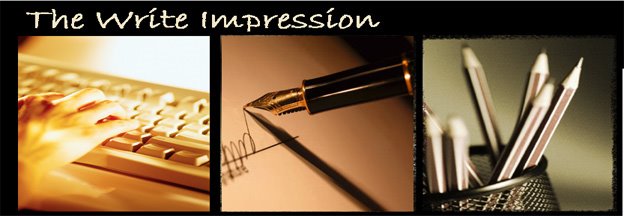 Careful writers always take into consideration those essential elements that when ignored lead to poor writing. The components of poor writing could include:
Careful writers always take into consideration those essential elements that when ignored lead to poor writing. The components of poor writing could include:- Weak vocabulary
- Poor punctuation
- Long sentences
- Ineffectual grammar, syntax, or structure
- Unrelated clauses
- Overemphasizing to accentuate
When any of these weaknesses strike either alone or in combination with others, poor writing often occurs. However, there are certain times when these weaknesses can be valuable in writing. Perhaps the writer is choosing to write ambiguously. As a technical writer, I too find it shocking that someone would choose to write in a way that leaves the reader with an unclear message, but consider this:
You and your obnoxious neighbor have arrived home from work at exactly the same time and you notice that he is making his way toward your car. “Here we go!” you grumble to yourself. “What did I do (or not do) now?” You inspect your lawn to make certain your tree limbs aren’t blowing in the direction of his house. You remember measuring the grass “to the millimeter” when you last cut it (at his request) to ensure it matched the level of his. What could he possibly complain about now?
As you sit lower in your seat, praying for the power of invisibility, he knocks on your car window. The smile on his face is unusual (and actually looks painful), but you quickly learn his motive. He begins to tell you about his strong desire to becoming the President of your home owner’s association and he would like for you to write a letter of recommendation for him. “Ha! Are you kidding?!” you almost shout out loud. But in the spirit of neighborliness (or perhaps to get away quickly) you tell him you will.
Now what? You know that he will have an opportunity to read what you have written, but you can’t imagine setting your neighborhood up for failure. What do you do?
The answer—you write ambiguously. You disorganize the syntax or structure of the sentence. You punctuate unclearly. You leave your readers (decision makers) with a choice about how they want to view your message.
Here is an example:
Dear Board:
You won’t find many people like Mr. XYZ. (Thank God). I, myself, find that he is always trying. (read: annoying) In fact, I must say that one usually comes away from him with a good feeling. His fellow neighbors and I often discuss how he takes a great deal of enjoyment out of living within our community. (He takes it away from others as well.) And, there is no questioning his dedication to the beautification of his home. (If you do question it, he will go ballistic.)
Here in the community, his input is always critical. (He never says anything nice), and I must say that he stands alone in his ability to get along with others. (No one will stand near him.) It is hard to imagine that anyone could fail to be impressed by or like Mr. XYZ. (He will make an impression, but no one will like him.)
I sincerely hope that you will consider my recommendation of Mr. XYZ when selecting our new association President.
Thank you,
Fellow Homeowner
For more information and recommendation ideas about using ambiguous writing effectively, you can read The Lexicon of Intentionally Ambiguous Recommendations by Robert J. Thornton. Ideas for this post were selected from the reading of this truly enjoyable book.








